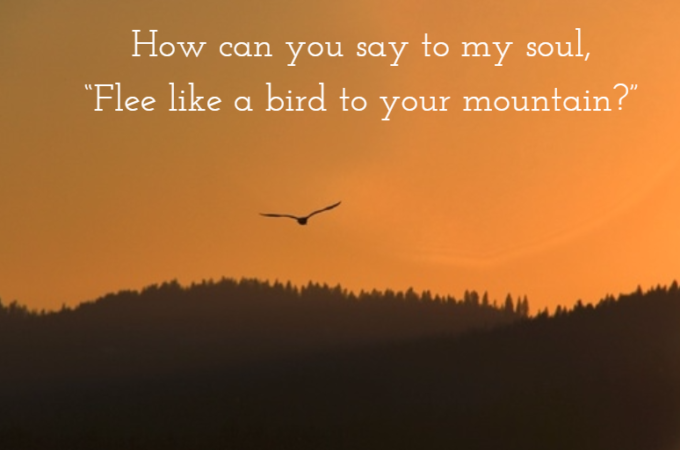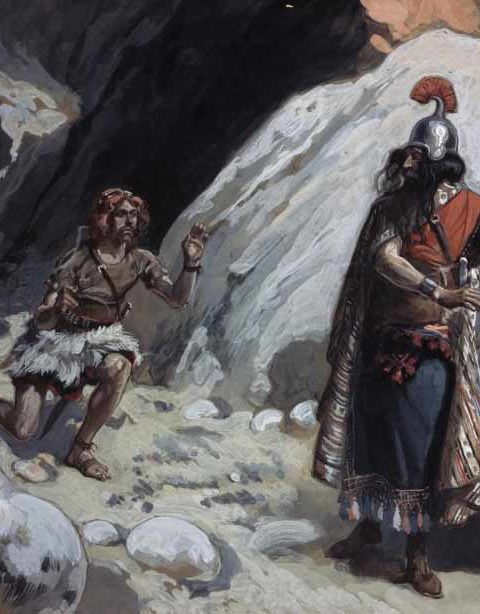If the foundations are destroyed, what can the righteous do? This is a question for the remnant today as much as it was for King David, when he penned these words in a song, some 3000 years ago.
If the foundations of a nation are destroyed, the nation as it has been known will crumble.
Perhaps Psalm 11 can be understood as a song for the Remnant today in the midst of the foundations that have been destroyed in Western civilization. In our last reflection on a Remnant people, let’s consider this beautiful Psalm, written when the foundations of David’s world were being destroyed as Saul was pursuing David to kill him (see 1 Sam 23).
1 In the Lord I take refuge;
how can you say to my soul,
“Flee like a bird to your mountain,
2 for behold, the wicked bend the bow;
they have fitted their arrow to the string
to shoot in the dark at the upright in heart;
3 if the foundations are destroyed,
what can the righteous do?”
4 The Lord is in his holy temple;
the Lord’s throne is in heaven;
his eyes see, his eyelids test the children of man.
5 The Lord tests the righteous,
but his soul hates the wicked and the one who loves violence.
6 Let him rain coals on the wicked;
fire and sulfur and a scorching wind shall be the portion of their cup.
7 For the Lord is righteous;
he loves righteous deeds;
the upright shall behold his face.
The psalm is structured in three distinct parts:
- Vs 1-3 – David affirms his faith in God while his fearful friends urge David to flee
- Vs 4-6 – David explains his trust in God
- Vs 7 – The outcome of this trial: the righteous will see the face of God.
Let’s unpack this psalm and see what lessons may be learned for a remnant people today.
While the fearful cringe, David affirms his faith in God
1 In the Lord I take refuge;
how can you say to my soul,
“Flee like a bird to your mountain,
David laments the call of his friends and companions to “flee like a bird to your mountain.” Instead of escaping to the mountains, David flees to the God who is our refuge.
2 for behold, the wicked bend the bow;
they have fitted their arrow to the string
to shoot in the dark at the upright in heart;
Why should the remnant flee? Because, his friends argue, the danger is imminent. The wicked have bent the bow, put the arrow in the string, ready to shoot at the faithful.
3 if the foundations are destroyed,
what can the righteous do?”
What can the remnant do?
The health, welfare and flourishing of a people is dependent on the nation having a solid foundation. Saul and his government were unrighteous. The foundations of a lawful and just government were destroyed. When the foundations are destroyed chaos follows; and then comes tyranny.
This is the season in which David lived and it is the season the West is in today. The foundations of Judeo-Christian theism that created Western Civilization have been destroyed by the worshippers of man. The West as we have known it is dying.
What can the remnant do in this situation? David’s fearful friends had made their argument: flee to the hills. Now David will answer their challenge. Will David flee to the mountains? Or somewhere else?
… To be continued
- Darrow Miller







